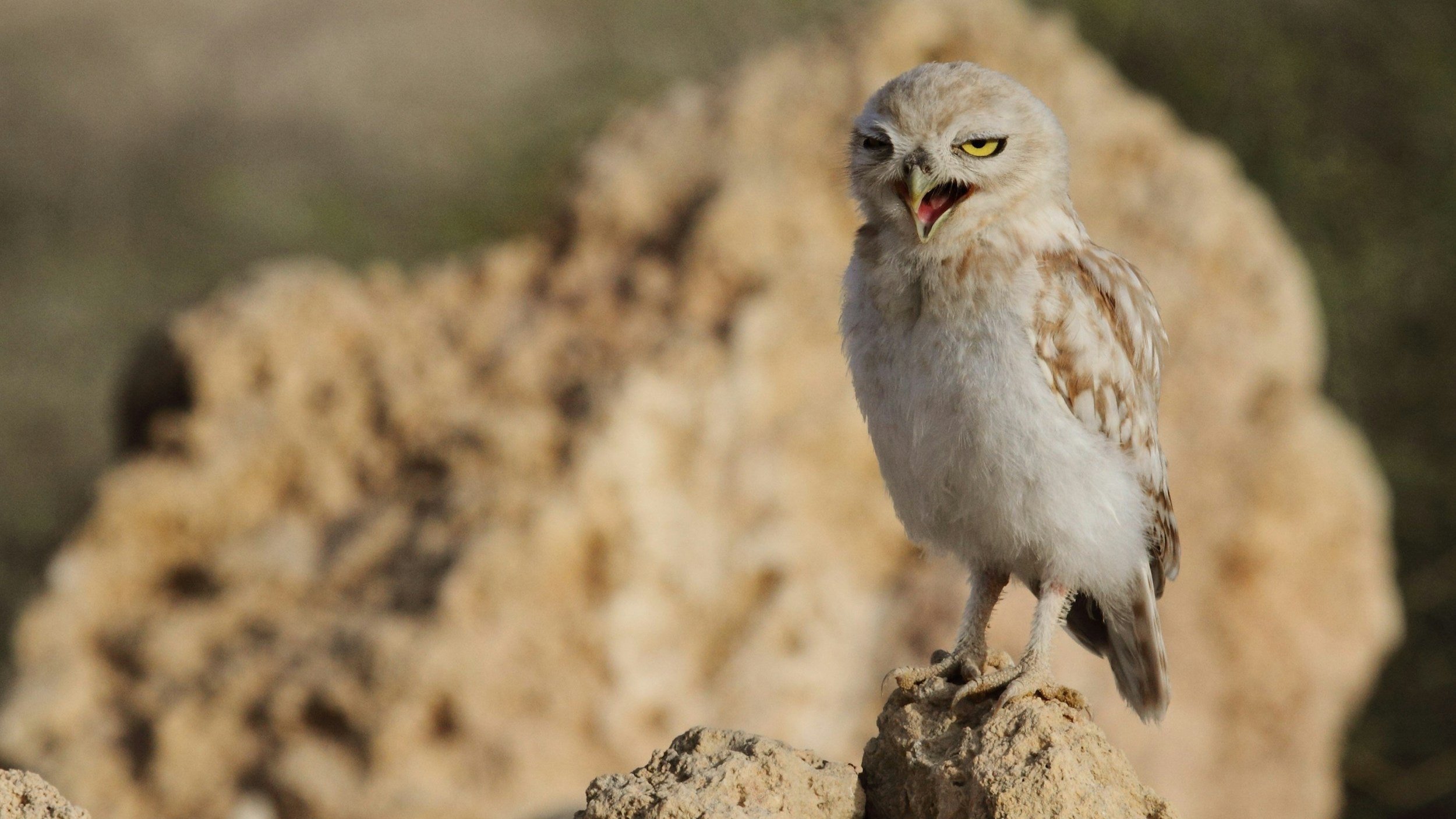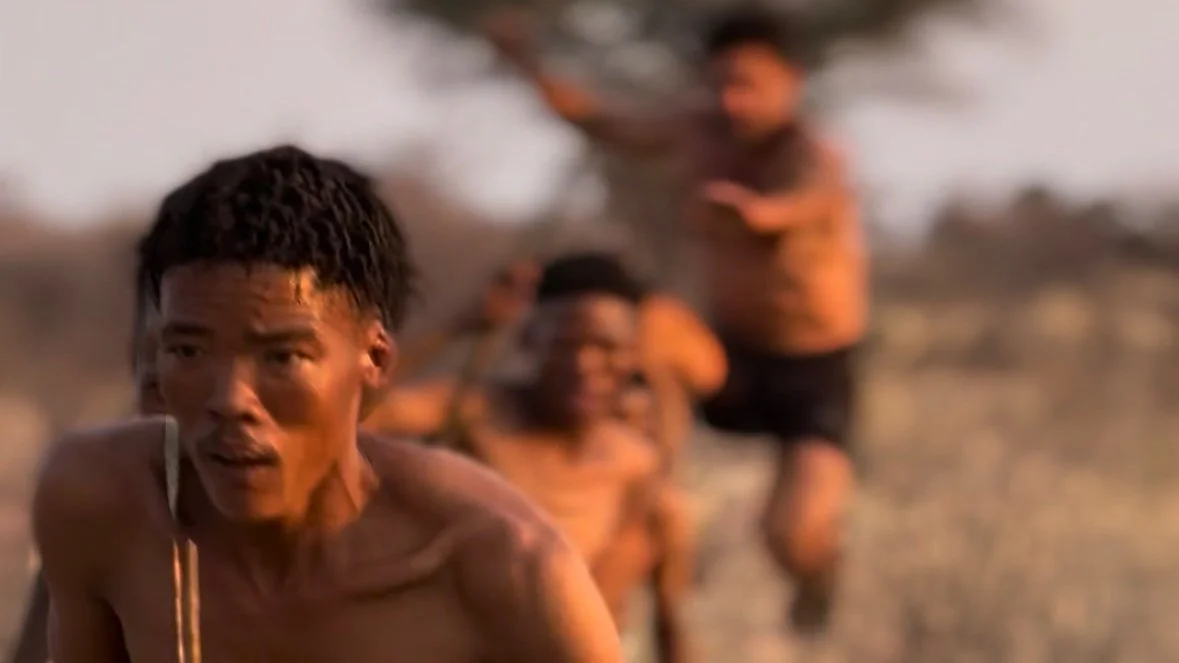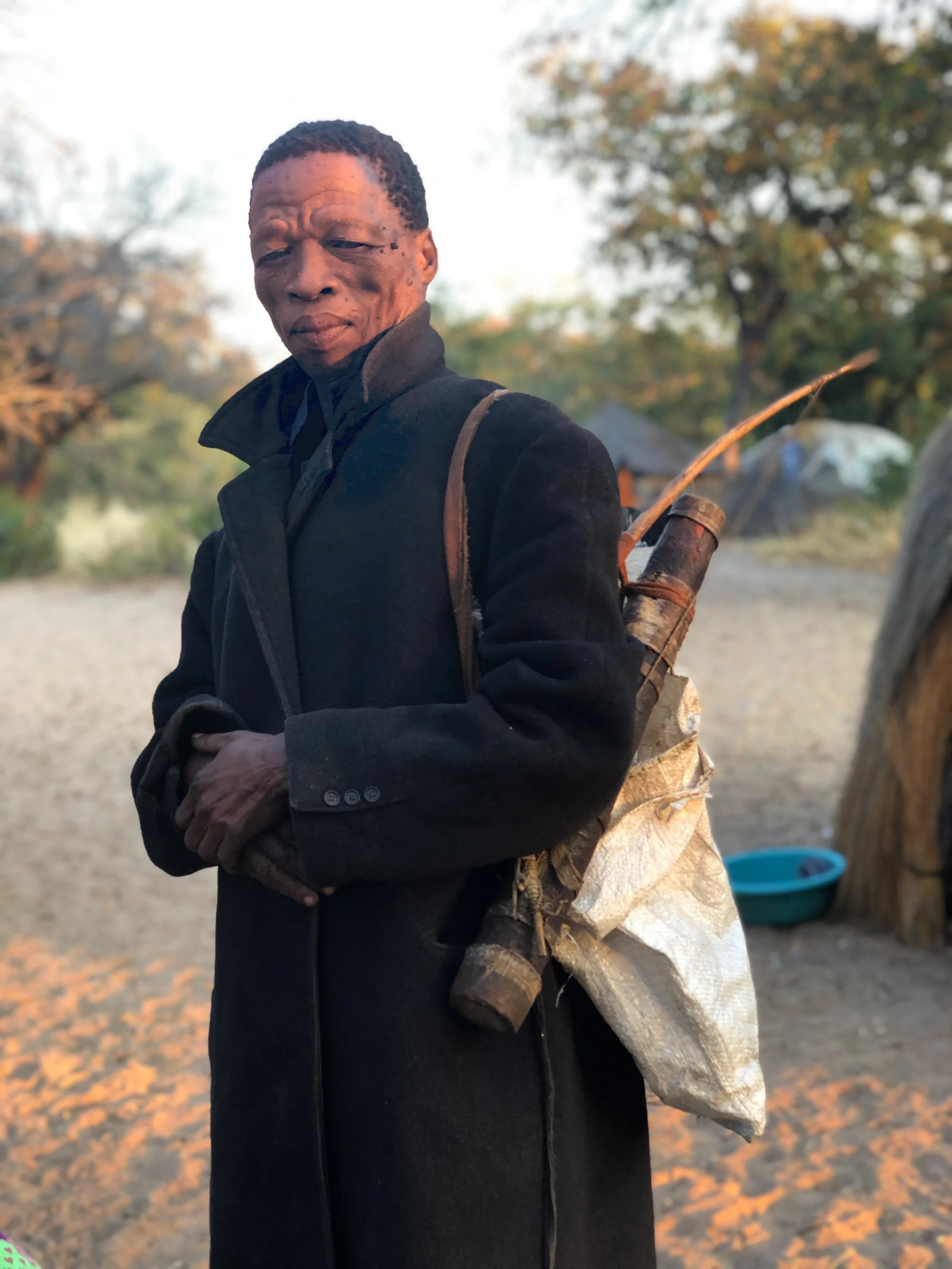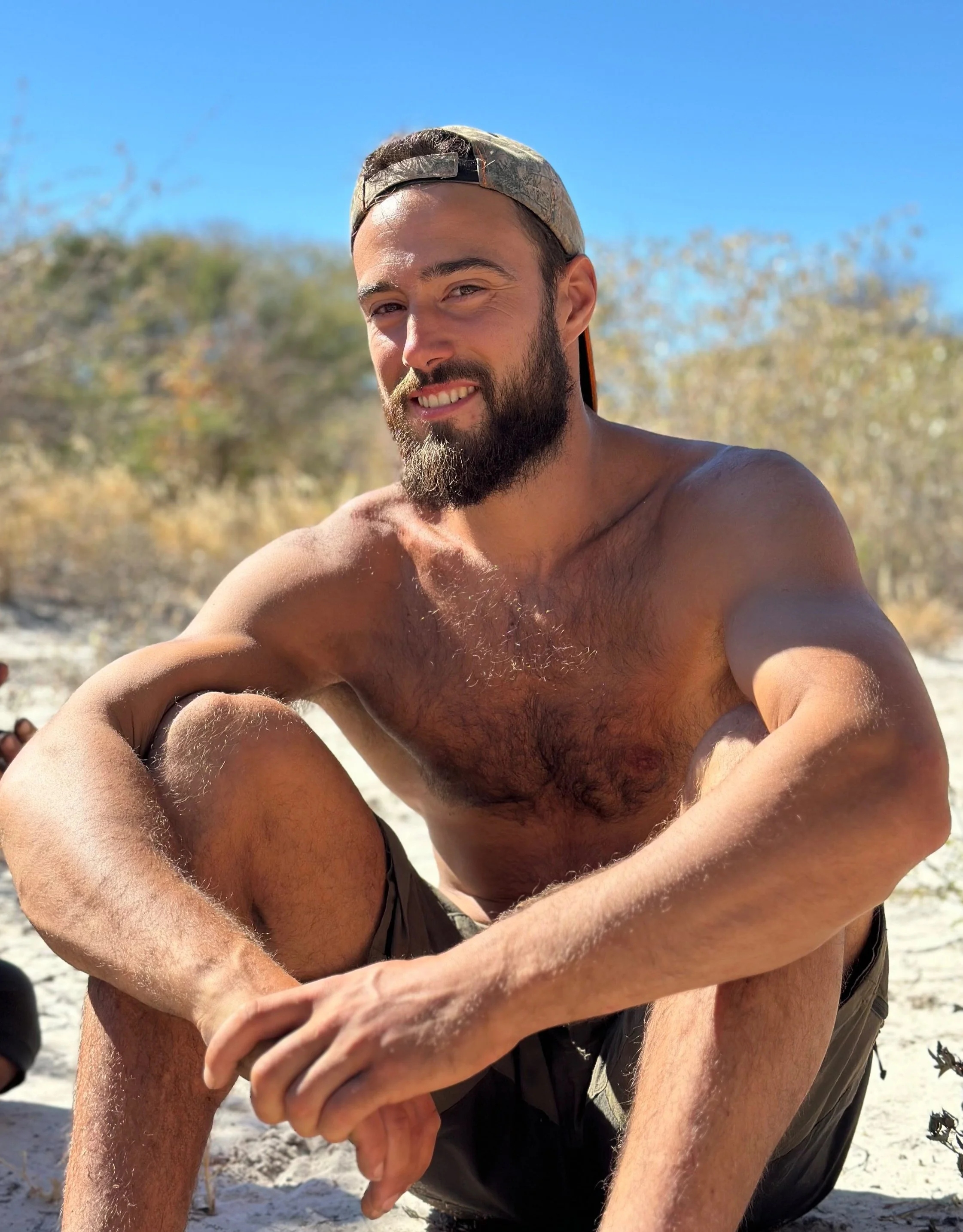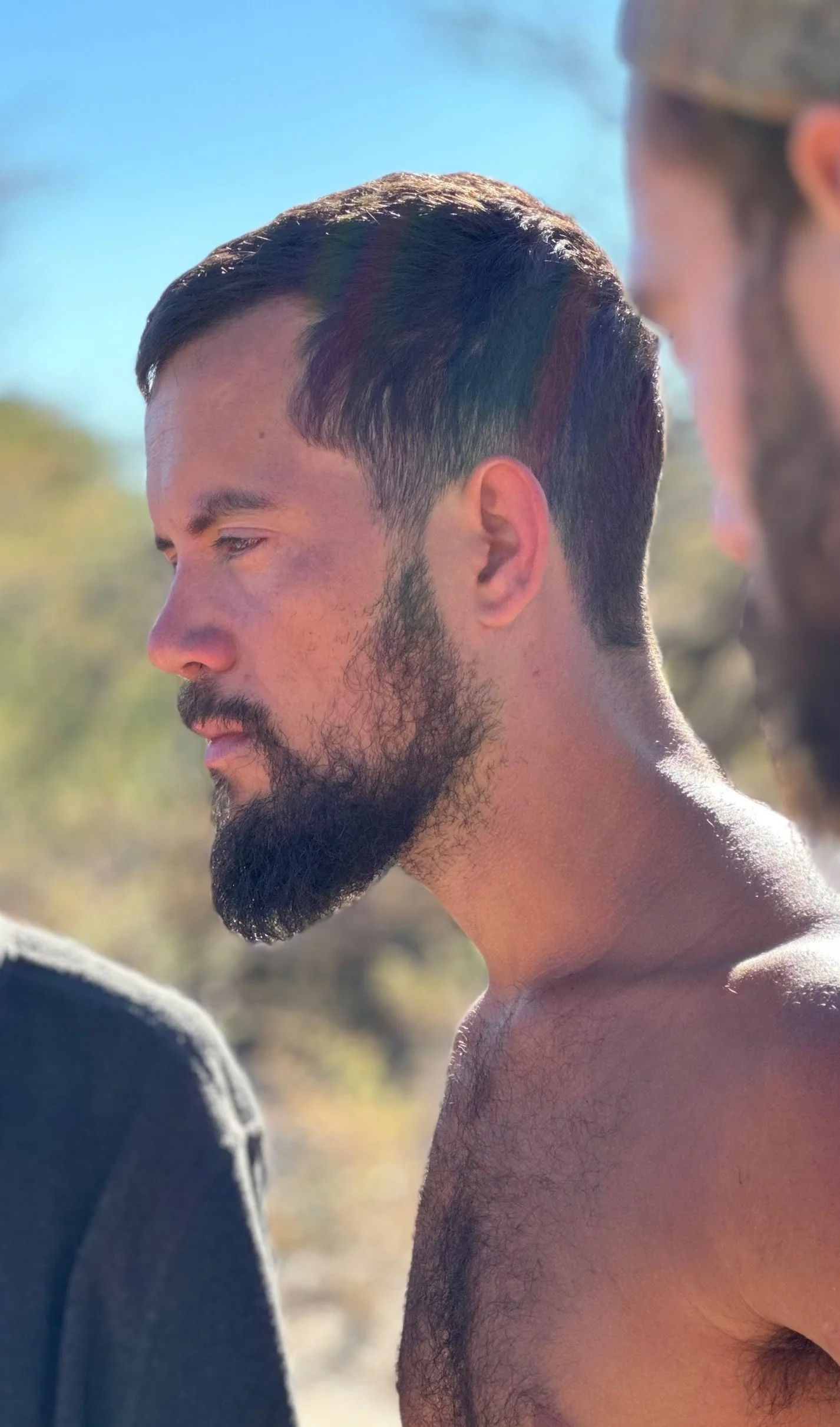
KALAHARI
immersive adventure
Ten days to explore
the wilds of Africa
and immerse yourself
in the birthplace of humanity.
Hundreds of thousands of years ago in the Kalahari our species developed the unique ability to run long distances at a steady pace under the desert sun.
This gave us an evolutionary advantage, allowing us to capture more game, and eventually develop the larger brains that make us who we are today. Persistence hunting in the Kalahari is literally what made us human.
Most academic experts, however, will tell you that persistence hunting no longer exists as a way of life; they say it’s a lost art-form, a forgotten practice of the ancient past.
We, on the other hand, have been there. We’ve done it. We spent years searching through desolate stretches of desert, exploring dozens of dead ends, and finally met with the last remaining hunters still running as our ancestors did.
We’ve developed an utterly unique project in collaboration with these hunters, bringing small groups of outsiders twice a year to experience the essence of what it means to be human, and help make sure that this dying tradition remains alive.
Ready to sign up?
Next trip: June 5-15, 2026
Price: €2,500 all included, except airfare
Maximum group size: 8 participants
Next trip: September 2026
Price: €4,000 all included, except airfare
Maximum group size: 4 participants
Comprehensive training program included
This is
where we
come from.
Expect the terrain to be rugged, with temperatures that are hot by day and cold by night. We will run on tracks, trails, and through the bush; there will be deep sand, sharp thorns, and piercing sun.
It is good to remember that these are the conditions in which our species was originally forged, where the fittest primates — our ancestors — evolved the arched feet, achilles tendons, and sweat glands that allow us to outrun hoofed ungulates to this day.
There is no better place to put your humanity to the test.
rewild your
BODY,
free your
MIND
-
From epic sand dunes to up-close elephant encounters, primal hunting skills to bushcraft fundamentals, expect to immerse yourself in a world that invites — and demands — you to awaken your full potential.
-
Connect with a small group of likeminded people from around the world, all committed to exploring what life has to offer beyond the confines of “normal.”
-
We work in collaboration with local communities, investing in projects such as water wells and habitat restoration, to help ensure that the persistence tradition can continue long into the future.
We are partnered with Sapient, a registered 501(c)(3) non-profit, and works in collaboration with the Nyae Nyae Conservancy and the Traditional Authority of the Ju/’hoan so that all of our activities can provide a real and lasting benefit to local communities.
-
The experience includes free access to our comprehensive 8-week training program that will you get ready in body and mind.
You will learn tools not only to help you run faster and longer, but to adjust your diet, fine-tune your breathing, and much more. These are practices you can take with you and continue developing long after the trip is finished. Full details on the training program are here.
-
Get discounts on quality gear and early access to future events we organize, both online and in-person.
Have questions?
Let’s talk details
Testimonials
Meet your guide
The path to make this childhood dream into reality has been long and arduous. After many failed attempts and dead ends, I now have the privilege of being able to lead small groups of adventurous souls into the heart of the Kalahari.
This project is the culmination of a lifelong search to reach the essence of what matters most and rediscover the true nature of our species.
Eric Haas
Want to learn more?
Set up a call to discuss details
In the meantime, listen to this conversation with Soten Lynch, the first participant to join us on a group experience.
If you still want to dig deeper, read this blog post on the Luna Sandals site, where Eric explains the nature of persistence hunting.
Minimalist Running, Persistence Hunting, and the Meaning of Life
FAQ
frequently asked questions
-
The Ju/’hoan community is small, and those who are still committed to living in the traditional manner is even smaller.
Our purpose here is to share with them, learn from them, and support them - not to overwhelm them with a deluge of prying outsiders.
After many lengthy discussions around the campfire we’ve settled on 8 as the maximum number of people that can participate in a meaningful and mutually beneficial experience.
When the focus is persistence hunting, 4 is the maximum that can be realistically sustained.
-
Each trip is different. On the June Immersion we explore some stunning landscapes, come into contact with many forms of wildlife, learn basic safety and survival skills, play with the local kids, and generally have a good time roughing it in the desert. We will spend time tracking, hunting, and learning traditional bushcraft.
For the September Intensive there will be some time to explore as well, but our focus is firmly on persistence hunting and all the skills necessary to do it successfully. -
It will be remote and challenging, but yes, you will be safe. Keep reading below.
-
We offer two different modalities, each suited for different interests and levels of fitness.
For the June Immersion, good physical fitness will certainly allow you to explore and adventure more fully, but it is not a strict prerequisite for participation.For September, however, selection criteria is demanding.. You’ll have to work to prepare for this, even if you’re already in decent shape for running on roads and trails. Running in hot and dry environments without trails or supplies has its own unique set of challenges, which most of us are not well prepared to meet.
We’ve developed comprehensive material to help you build the strength you’ll need, which is available to all participants free of charge.
-
We will be in nature, immersed in the elements.
Lions do live in the area, but they’ll be sleeping all day and won’t bother us in camp at night. Not an issue.
Elephants can be ornery sometimes, and we’ll do our best to steer clear; locals will teach us best practices when we arrive.
Venomous snakes do live in the area, but they are rare and will leave you alone unless you step on them. Anti-venom kits can be purchased for those looking to be extra-safe, though they are not cheap and it’s worth noting that locals never use them.
Best policy is to stay alert, be sensible, and stick together.
For persistence hunting, dehydration, sunstroke, and cramping are probably the biggest threats for runners in the Kalahari. These, of course, are mostly preventable with proper training and sensible nutrition. -
During the season we travel there are 0 mosquitos in the Kalahari, so malaria is not an issue.
Rabies is extremely rare, on par with Europe or the US.
TB, Hep A, and Hep B are fairly common, and transmissible, but can be treated if contracted. You’ll have to make your own judgment call here.
Best to speak with your doctor about this, and of course check the regulations specific to your country of residence.
-
Probably a very good idea. Medical care in Namibia is very affordable by international standards, but in the unlikely event that you need a medivac or complex emergency procedure, it’s definitely better to be covered by insurance.
-
We will carry essential First Aid material with us at all times, and there is a public health clinic less than 1 hour drive from our base camp. The doctors here are extremely experienced and competent, but lack the infrastructure necessary to perform complex medical procedures. In the unlikely event that it becomes necessary, both private and public options for comprehensive care are available in Windhoek.
-
English is the official language of Namibia, and many locals have received some amount of formal schooling, so basic communication is definitely possible. We will also have a dedicated translator to help us throughout the experience.
Our principles, which we expect all participants to follow, are simple: Humility, Respect, & Reciprocity. Experience has shown us, again and again, that this is the only way to do things right in the Kalahari.
We have been working closely with many local communities for a number of years in order to make this event happen in an ethical and sustainable manner; we are collaborating with the local Conservancy and Traditional Authority to ensure that everything is done according to the highest standards possible.
-
Not much. In fact, we strongly advise that you bring everything for the entire 10 days in a small carry-on bag.
We will provide a detailed packing list when you sign up, but to give you an idea:
-Clothing capable of reasonably protecting you from both sun and thorns
-Backpack with adequate carrying capacity for day trips
-Sleeping bag and warm clothes for night
-Biodegradable and odor-free soap, sunscreen, and toothpaste
-Larger water bottle or bladder to keep with you at camp
-External battery system for headlamp
-First aid kid for personal use (cuts, blisters, etc.)
-Any specific food, medicine, supplements, etc. you need to stay strong
-
Depends on your country of residence, though the answer is most likely yes. There is an easy online form to fill out, now required for visitors from most countries.
Don’t forget to print the visa before arrival. -
We will be camped out in tents and grass huts alongside our hosts. As a general rule accommodations will be shared, unless you have a good reason for needing to sleep alone.
-
Total cost, including everything but airfare, is €2,500 for the June Immersion and €4,000 for the September Intensive.
Early Bird discounts of €500 are available.You can reserve your spot here.
-
Everything except airfare. Pack your gear, get yourself to Windhoek, and we’ll take care of the rest.
-
Fees go to cover the costs of the trip, and all money beyond that is donated to community endeavors to help the Ju/’hoan keep their traditions alive.
The main projects at present are geared toward passing on ancestral knowledge to the younger generations in three main areas: (1) running, hunting and tracking, (2) gathering edible and medicinal plants, and (3) shamanic healing traditions.
-
Yes, of course. Contribution, collaboration, and donations of many kinds are gratefully accepted. Send us an email and we’ll talk over the details.
-
We’ll be flying in and out of Windhoek, Namibia.
Please confirm exact dates and times with us before making a purchase.
-
We also offer in-person workshops, retreats, immersive adventures, and mind-body therapy in Europe and the US.
Check out www.primalnature.eu for details.
